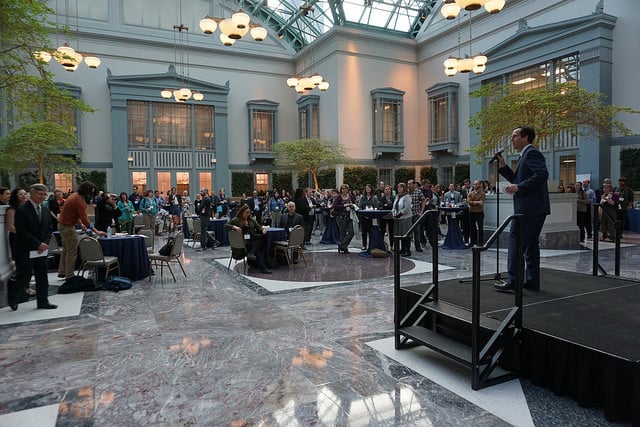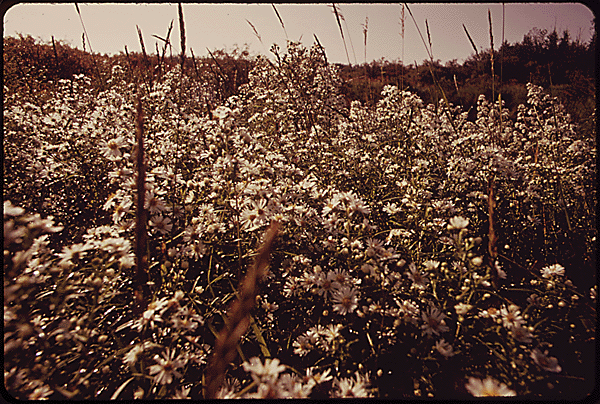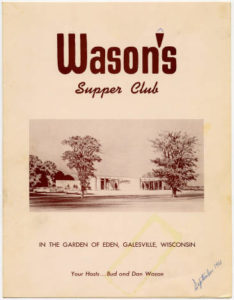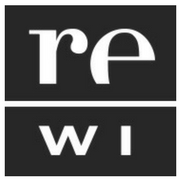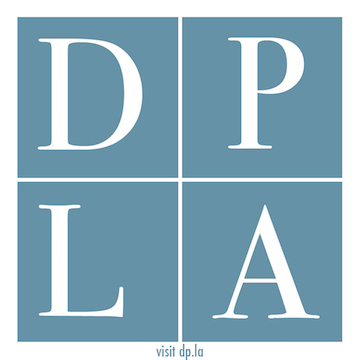Post contributed by Gail Murray, Resources for Libraries & Lifelong Learning. Reposted from WI Libraries for Everyone, Division for Libraries & Technology, Wisconsin Department of Public Instruction.
In late April, 350 librarians, archivists, educators, developers, and scholars convened at the Harold Washington Library in downtown Chicago for the 4th DPLAfest, a 2-day gathering of individuals doing work related to the national platform of digital collections that is the Digital Public Library of America (DPLA). This year’s DPLAfest was sponsored by Chicago Public Library, the Black Metropolis Research Consortium, Chicago Collections, and Reaching Across Illinois Library System (RAILS). DPLA is a single interface where users can search a wide range of digital collections from institutions across the country, from large libraries like the New York Public Library to smaller local organizations like the Mineral Point Historical Society in Wisconsin.
Speakers and attendees included representatives from state, public, academic, and K-12 libraries across the country, vendor and non profit organization representatives, and international attendees representing their region’s versions of aggregated digital collections, such as Trove in Australia and Europeana in the European Union.
Programs covered a broad range of topics, including the International Image Interoperability Framework (IIIF), access issues, using digital collections in K-12 classrooms, measuring the social impact of library programs and services, and cultivating partnerships across institutions and sectors. The gathering offered attendees the opportunity to connect with representatives from other states who are at varying stages of involvement in DPLA, some longstanding and some just coming on board. The full schedule can be found here, with descriptions for each session, including presentation slides for many sessions.
While the conference covered broad issues and developments in digital collections and related resources, a central theme that emerged was that of relationship-building, between institutions and organizations, communities and resources, and professionals who attended. A representative from the Georgia Library Service’s HomePLACE described it best when speaking about her program as “both a relationship and a resource.” This can be said about Wisconsin’s DPLA service hub as well.
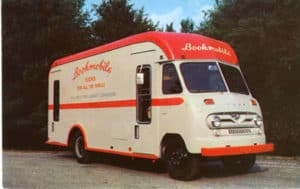
From the University of Illinois at Urbana-Champaign.
The Wisconsin Service Hub of the DPLA is a joint project of the Milwaukee Public Library, UW-Madison, UW-Milwaukee, WiLS, the Wisconsin Department of Public Instruction, the Wisconsin Historical Society, and Marquette University, and it builds upon and draws from the Recollection Wisconsin statewide digital collections program. These organizations work together to ensure that Wisconsin’s rich history is accessible online to all, drawing from collections from 66 contributing institutions across Wisconsin.
For example, a search for Trempealeau, a place name unique to Wisconsin, returns over 820 results from 36 institutions across the country, including a majority from Wisconsin organizations. These results include a 1975 radio show recording about Trempealeau County via the American Archive of Public Broadcasting, a 1961 supper club menu from Wason’s in Galesville held by the Culinary Institute of America, and scans of a WWII diary from a rural Wisconsin farm boy who became a soldier and bronze star recipient, from a collection owned by the La Crosse County Historical Society.
Through stewardship of cultural heritage resources, and through collaboration and vision, DPLA and its many state and regional hubs enable the public to connect with resources that may otherwise be inaccessible. DPLA is both an invaluable resource on the basis of the vast collections it enables access to, and a network of crucial relationships among collaborating institutions all working to expand the reach of our nation’s cultural heritage collections.

